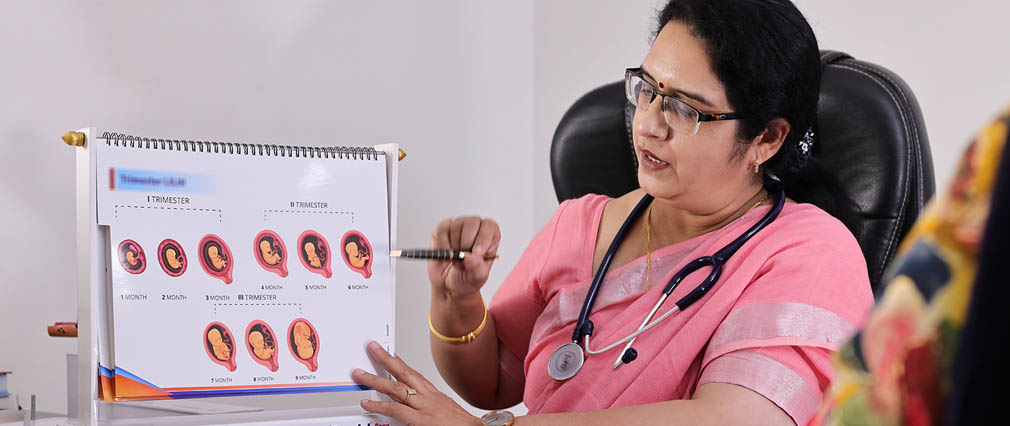
High Risk Pregnancy: Care and Expertise at Meerut Gynaecologist
A high-risk pregnancy occurs when a woman or her baby faces an increased risk of health complications during pregnancy, delivery, or postpartum. Factors contributing to a high-risk pregnancy may include pre-existing health conditions, complications arising during pregnancy, or risks related to maternal age and previous obstetric history. While it may sound concerning, with proper management and expert care, many high-risk pregnancies result in healthy outcomes for both mother and baby.
At Meerut Gynaecologist, Dr. Deepti Dogra specializes in managing high-risk pregnancies with precision and compassion. Her extensive experience and use of advanced diagnostic tools ensure that each patient receives comprehensive and personalized care throughout their pregnancy journey.
Causes and Risk Factors for High Risk Pregnancy
1. Maternal Health Conditions:
- Chronic hypertension or diabetes.
- Thyroid disorders or kidney disease.
- Heart disease or autoimmune conditions like APLA syndrome.
2. Pregnancy-Related Complications:
- Pregnancy-induced hypertension (PIH).
- Gestational diabetes or placental abnormalities like placenta previa or placenta accreta.
- Multiple pregnancies (twins or triplets).
3. Lifestyle and Age-Related Factors:
- Maternal age over 35 or under 17.
- Smoking, alcohol use, or poor nutrition.
Symptoms of High Risk Pregnancy
- Severe swelling, headache, or vision changes (signs of preeclampsia).
- Abnormal growth patterns in the baby.
- Reduced fetal movements or amniotic fluid abnormalities.
- Preterm contractions or bleeding during pregnancy.
Diagnosis and Treatment by Dr. Deepti Dogra at Meerut Gynaecologist
Dr. Deepti Dogra uses advanced techniques and individualized care plans to manage high-risk pregnancies. Diagnostic methods include:
- Routine and Specialized Ultrasound: To monitor fetal growth and placental health.
- Blood Pressure and Sugar Monitoring: Regular checks to manage hypertension and diabetes.
- Doppler Studies: To assess blood flow between the baby and placenta.
- Frequent Consultations and Monitoring: Ensuring early detection and intervention for any complications.

Treatment options offered by Dr. Dogra include:
- Medications: To manage blood pressure, diabetes, or other underlying conditions.
- Nutritional Guidance: Tailored diet plans to meet maternal and fetal needs.
- Hospital Monitoring: For preterm labor risks or severe complications requiring close supervision.
- Safe Delivery Planning: Dr. Dogra plans delivery modes carefully, often opting for cesarean sections if necessary for maternal or fetal safety.
Why Meerut Gynaecologist for High Risk Pregnancy Care?
With Dr. Deepti Dogra’s vast expertise in high-risk obstetrics, Meerut Gynaecologist provides exceptional care in a supportive environment. Each patient benefits from close monitoring, timely interventions, and compassionate guidance throughout their journey to motherhood.
Your Baby Deserves the Best Start!
If you’re facing a high-risk pregnancy, trust Dr. Deepti Dogra at Meerut Gynaecologist to provide expert care and support. Book your consultation today and ensure a safe and healthy pregnancy for you and your baby!
FAQs for High-Risk Pregnancy at Meerut Gynaecologist
- Regular prenatal check-ups and ultrasounds.
- Lifestyle modifications, including a balanced diet and appropriate exercise.
- Medications or treatments to address specific complications.
- Specialized care during labor and delivery.
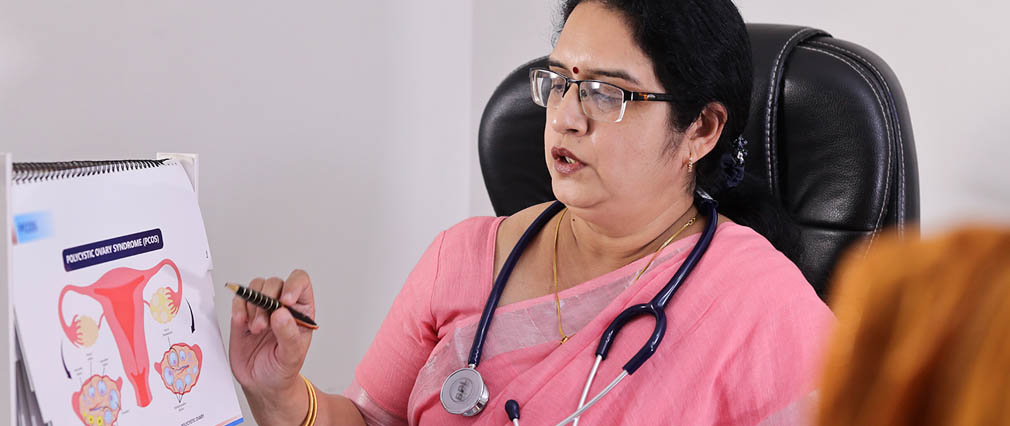
Pregnancy-Induced Hypertension (PIH): Diagnosis and Management at Meerut Gynaecologist
Pregnancy-Induced Hypertension (PIH), also known as gestational hypertension, is a condition characterized by elevated blood pressure during pregnancy. It typically develops after the 20th week of gestation in women with previously normal blood pressure. While PIH may appear mild initially, it requires careful monitoring as it can progress to severe complications, such as preeclampsia, eclampsia, or HELLP syndrome.
Managing PIH effectively is critical to safeguarding the health of both mother and baby. At Meerut Gynaecologist, Dr. Deepti Dogra specializes in the timely diagnosis and management of PIH, ensuring optimal care throughout the pregnancy journey.
Causes and Risk Factors for PIH
Although the exact cause of PIH is unknown, certain factors increase the risk:
- First pregnancies or pregnancies in women over 35 years of age.
- Obesity or pre-existing conditions like chronic hypertension, diabetes, or kidney disease.
- Family history of preeclampsia or PIH.
- Multiple pregnancies (twins or triplets).
- Poor nutrition or lack of prenatal care.
Symptoms of PIH
- Elevated blood pressure readings (140/90 mmHg or higher).
- Severe headaches or blurred vision.
- Swelling in the hands, feet, or face.
- Sudden weight gain.
- Protein detected in urine (a potential progression to preeclampsia).
Diagnosis and Management by Dr. Deepti Dogra at Meerut Gynaecologist
Dr. Deepti Dogra uses advanced diagnostic techniques and personalized care plans to manage PIH effectively. Diagnosis includes:
- Blood Pressure Monitoring: Regular checks to detect and track hypertension.
- Urine Tests: To identify protein levels and signs of kidney involvement.
- Blood Tests: To monitor liver function, platelet counts, and signs of preeclampsia.
- Ultrasound and Doppler Studies: To assess fetal growth and placental blood flow.
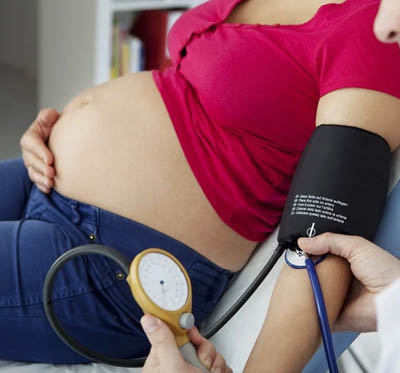
Treatment options include:
1. Lifestyle and Dietary Adjustments:
- Low-sodium diets and increased hydration.
- Stress management and adequate rest.
2. Medications:
- Safe antihypertensive drugs to control blood pressure.
- Medications to prevent seizures in severe cases.
3. Frequent Monitoring:
- Regular antenatal visits to monitor maternal and fetal health.
- Close observation for progression to preeclampsia or eclampsia.
4. Delivery Planning:
- In severe cases, early delivery may be recommended to protect maternal and fetal well-being.
Why Meerut Gynaecologist for PIH Management?
Dr. Deepti Dogra’s expertise in managing PIH ensures timely interventions and reduced risks of complications. At Meerut Gynaecologist, patients benefit from comprehensive care, including advanced diagnostics and compassionate guidance throughout their pregnancy.
Stay Ahead of Pregnancy Challenges!
If you’re experiencing symptoms of PIH, don’t wait. Schedule a consultation with Dr. Deepti Dogra at Meerut Gynaecologist and receive expert care tailored to your needs. Let us help you ensure a safe and healthy pregnancy journey for you and your baby!
FAQs for PIH at Meerut Gynaecologist
- Persistent headaches.
- Swelling in the hands, feet, or face.
- Sudden weight gain.
- Blurred vision or sensitivity to light.
- Pain in the upper abdomen.
- Regular blood pressure monitoring.
- Medications to lower blood pressure.
- Bed rest and lifestyle modifications.
- Early delivery if the condition worsens.
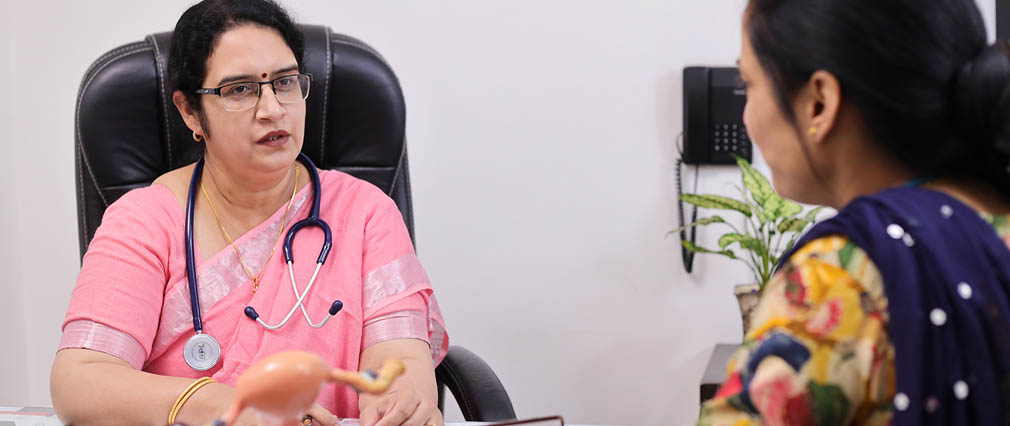
Gestational Diabetes: Diagnosis and Management at Meerut Gynaecologist
Gestational diabetes (GD) is a form of diabetes that develops during pregnancy and typically resolves after delivery. It occurs when the body cannot produce enough insulin to meet the increased demands of pregnancy, leading to elevated blood sugar levels. This condition can affect the health of both mother and baby if not properly managed.
Gestational diabetes often develops during the second or third trimester and may not present noticeable symptoms, making routine screening vital. With expert care and lifestyle adjustments, most women with GD can have healthy pregnancies and deliveries. At Meerut Gynaecologist, Dr. Deepti Dogra specializes in the early diagnosis and effective management of gestational diabetes, ensuring the best outcomes for mother and baby.
Causes and Risk Factors for Gestational Diabetes
- Hormonal Changes: Pregnancy hormones can interfere with insulin action, leading to insulin resistance.
- Obesity or Overweight: Increased weight is a significant risk factor.
- Previous History: Women with a history of GD or large babies in earlier pregnancies are at higher risk.
- Family History: A family history of diabetes increases susceptibility.
- Maternal Age: Women over 35 years of age are at greater risk.
Symptoms of Gestational Diabetes
Gestational diabetes often has no symptoms, but some women may experience:
- Increased thirst or frequent urination.
- Fatigue or blurred vision.
- Recurrent infections, including urinary tract or vaginal infections.
Diagnosis and Management by Dr. Deepti Dogra at Meerut Gynaecologist
Dr. Deepti Dogra employs a comprehensive approach to diagnose and treat gestational diabetes. Diagnostic methods include:
- Glucose Screening Test: A preliminary test to identify high blood sugar levels.
- Oral Glucose Tolerance Test (OGTT): A more detailed test to confirm GD diagnosis.
- Routine Monitoring: Regular blood sugar checks throughout pregnancy.

Treatment options include:
1. Dietary Modifications:
- A tailored meal plan focusing on balanced nutrition and controlled carbohydrate intake.
- Frequent, smaller meals to maintain steady blood sugar levels.
2. Exercise:
- Gentle physical activities, such as walking or prenatal yoga, to improve insulin sensitivity.
3. Blood Sugar Monitoring:
- Regular checks to ensure glucose levels remain within the target range.
4. Medications:
- Insulin or oral medications may be prescribed if blood sugar cannot be managed through diet and exercise alone.
5. Close Fetal Monitoring:
- Ultrasound and Doppler studies to monitor fetal growth and ensure the baby’s well-being.
Why Meerut Gynaecologist for Gestational Diabetes Care?
At Meerut Gynaecologist, Dr. Deepti Dogra provides expert guidance and personalized care for gestational diabetes. Her holistic approach focuses on maintaining healthy blood sugar levels while ensuring optimal maternal and fetal health.
Prioritize Your Health and Your Baby’s!
If you’re at risk or diagnosed with gestational diabetes, trust Dr. Deepti Dogra at Meerut Gynaecologist to provide comprehensive care and support. Book your consultation today and embrace a healthier pregnancy journey for you and your baby!
FAQs for Gestational Diabetes at Meerut Gynaecologist
- Excessive thirst.
- Frequent urination.
- Fatigue.
- Blurred vision.
- Dietary Changes: A balanced, low-sugar diet to maintain blood sugar levels.
- Regular Exercise: Gentle activities to improve insulin sensitivity.
- Blood Sugar Monitoring: To track and manage glucose levels.
- Medications or Insulin: If diet and exercise are insufficient.
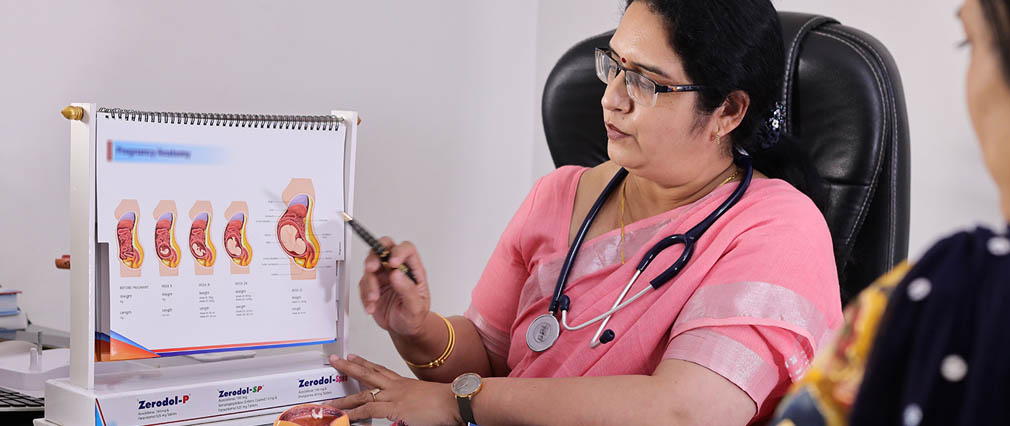
Intrauterine Growth Restriction (IUGR): Diagnosis and Management at Meerut Gynaecologist
Intrauterine Growth Restriction (IUGR) is a condition where a baby does not grow to the expected size during pregnancy. It is diagnosed when the estimated fetal weight is below the 10th percentile for gestational age. IUGR can result from maternal, placental, or fetal factors and poses risks to the baby’s health before and after birth, including low birth weight, difficulty adapting to life outside the womb, or long-term developmental challenges.
Managing IUGR requires timely detection and specialized care to optimize outcomes for both mother and baby. At Meerut Gynaecologist, Dr. Deepti Dogra offers advanced monitoring and interventions to manage IUGR effectively, ensuring the best possible care for expecting mothers.
Types of IUGR
- Symmetrical IUGR: The baby’s entire body grows at a slower rate, often due to genetic conditions or early pregnancy issues.
- Asymmetrical IUGR: The baby’s head and brain grow normally, but the body grows at a slower rate, typically caused by placental insufficiency in later pregnancy stages.
Causes and Risk Factors for IUGR
• Maternal Factors:
- Chronic hypertension or preeclampsia.
- Poor nutrition or anemia.
- Smoking, alcohol consumption, or drug use during pregnancy.
- Chronic medical conditions like kidney disease or diabetes.
• Placental Factors:
- Insufficient blood flow or placental abruption.
- Abnormal implantation of the placenta.
• Fetal Factors:
- Genetic or chromosomal abnormalities.
- Congenital infections such as rubella or cytomegalovirus.
Symptoms and Indicators of IUGR
- Fundal height smaller than expected for gestational age.
- Reduced fetal movements.
- Abnormal Doppler readings indicating restricted blood flow to the baby.
Diagnosis and Management by Dr. Deepti Dogra at Meerut Gynaecologist
Dr. Deepti Dogra specializes in the early diagnosis and careful management of IUGR. Diagnostic techniques include:
- Ultrasound: To measure fetal growth and estimate weight.
- Doppler Studies: To assess blood flow in the umbilical artery and identify placental insufficiency.
- Amniotic Fluid Assessment: To evaluate for reduced fluid levels, often associated with IUGR.
- Non-Stress Tests (NST): To monitor the baby’s heart rate and overall well-being.
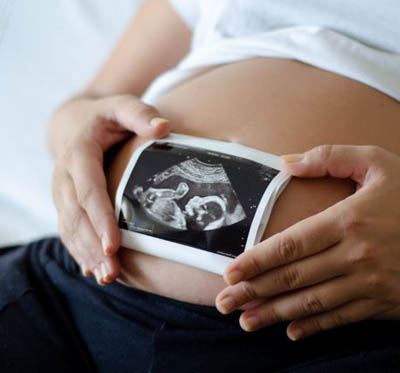
Treatment options include:
1. Maternal Health Optimization:
- Nutritional counseling and supplements to address deficiencies.
- Rest and reduced stress to improve placental blood flow.
2. Close Monitoring:
- Regular ultrasounds and Doppler studies to track fetal growth and well-being.
3. Hospitalization:
- For severe cases, hospitalization ensures continuous monitoring and immediate intervention if required.
4. Timely Delivery:
- In cases of severe IUGR, early delivery may be planned to prevent complications. Dr. Dogra ensures safe delivery through cesarean or induced labor as per the baby’s condition.
Why Meerut Gynaecologist for IUGR Management?
At Meerut Gynaecologist, Dr. Deepti Dogra provides expert care and advanced monitoring techniques to manage IUGR effectively. Her patient-centered approach ensures that mothers receive compassionate care and babies are given the best chance for healthy growth and development.
Ensure the Best for Your Baby!
If you’re at risk or diagnosed with IUGR, trust Dr. Deepti Dogra at Meerut Gynaecologist for specialized care. Schedule your consultation today and give your baby the best possible start to life!
FAQs for Intrauterine Growth Restriction at Meerut Gynaecologist
- A smaller-than-expected baby bump for gestational age.
- Reduced amniotic fluid levels.
- Decreased fetal movements.
- Abnormal findings during ultrasound scans.
- Frequent monitoring with ultrasounds and non-stress tests.
- Optimizing maternal nutrition and health.
- Treating underlying maternal conditions.
- Early delivery in severe cases to prevent complications.


